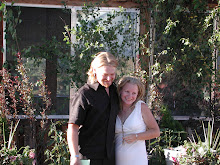Last week, I received a note from a Willamette Valley, Ore., family farmer with a common dilemma: "How to convert this farm from our current model to a farm of the future?"
This farmer produces grass seed and vegetables for processors, and recently set aside 25 of his 1,000 acres to convert to organic production. The family is having a hard time figuring out the economics of this transition toward organics and local sales as their next generation prepares to take over.
"I really am interested in learning more about food security. I just don't get the idea of hauling lettuce to Portland once a week or keeping high-end restaurants supplied," he wrote.
The switch to natural production and local sales shouldn't be so hard, but it is.
When our forward-looking farmer changes his mind, he disrupts the business plans of some powerful companies. And while our farmer might be newly awakened to the need for reform, the companies whose profits he now threatens have long been lobbying for laws to support their business plans.
This change is going to be an uphill battle. You can't just go organic, you've got to overcome drug-addicted soil. You can't just supply local stores, you've got to do your own retail in "alternative" markets. You've got to actually seek out a customer base among the supermarkets' other outcasts: the granola-crunching, tree-hugging, counter-culture liberals.
This really is going to be an uphill battle. Generally speaking, farmers and hippies were enemies in the 1960s, and many of them and their descendants remain so today. But if these wounds aren't healed, the farmer will go under and we'll all be eating "soylent green" before too long.
As it turns out, the counter-culture had (and still has) some legitimate complaints about how this country was (and is) being run. If you still doubt that, read William Engdahl's book "Seeds of Destruction" and watch the documentary film "The Future of Food."
Then read Michael Pollan's latest writings and you'll understand where our hapless consumer stands. People are downright scared of conventional food these days.
Pollan is informing millions of Americans that what fills supermarket shelves isn't food, it's "foodlike" stuff. And the farmer knows this to be true because he only gets paid for the few cents worth of actual food in the shiny packages. What's more, Pollan informs that this foodlike stuff is making people sick.
The hapless consumer now worries: Is that meat actually fresh or is it just red from the carbon dioxide? How often are downer cattle mistreated and used for food? Does this have genetically modified ingredients or not? And what pharmaceuticals were in the water that was used to process this stuff? Yikes!
At the risk of sounding like a broken record, I have one piece of advice for the farms of the future: Grow Freedom. I mean it. Start thinking of freedom as your over-arching crop, and everything else will fall into place.
This line of thinking is not hard. If you are able to pass on a successful farm to your children and grandchildren, they will enjoy some measure of freedom in this world. If you can start producing food for your local community - not just lettuce, but three squares a day - then your neighbors can enjoy independence from supermarket food.
And as farms successfully transition to diversified, "biodynamic" farms of the future, the places themselves will become well-balanced living organisms, independent in their own rights.
Instead of merely measuring a farm's carbon footprint, we should start measuring its bio-empowerment quotient. On a scale of 0 to 100, many conventional farms would measure in the negative numbers, while 0 could represent "no harm, no foul," on up to 100 points going to the farm that thrives entirely without inputs, using every organic tool in the arsenal to grow free people.
Subscribe to:
Post Comments (Atom)

No comments:
Post a Comment